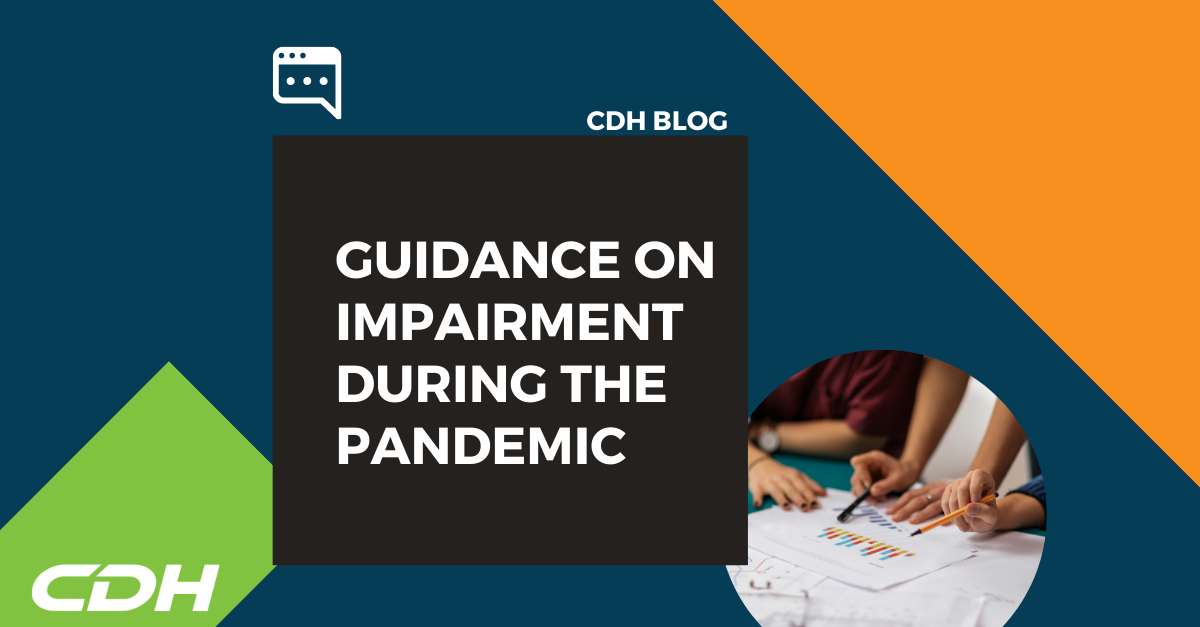
By Andrea Krueger, Principal, CDH, P.C.
Are you worried about the long-term impacts of the current pandemic on your assets? Many companies are struggling to assess the various uncertainties in our current economic climate.
According to the Wall Street Journal, the 2,000 largest companies in the U.S. recorded $261 billion in impairment in the first half of 2020.
When do you need to evaluate for impairment?
Under the U.S. Generally Accepted Accounting Principles (GAAP), companies need to evaluate their long-term assets for impairment when there is a triggering event. Some of these asset groups may have never been assessed for impairment in the past. A triggering event is defined as an event or change in circumstances that indicates an asset may be impaired. Examples of indicators of impairment include; a significant decrease in market value, an adverse change in how a long-lived asset or asset group is planned to be used, or a substantial change in the business environment that could adversely affect the value of the long-lived asset or asset group.
Assets such as goodwill or indefinite-lived intangibles with an annual impairment testing requirement should also be tested when there are triggering events. Some non-public companies have adopted the private company exception for goodwill and intangibles. In that case, these assets must be tested for impairment only when a triggering event has occurred.
Forecasting Challenges
Forecasting future cash flows is difficult in the current business climate as the long-term effects are difficult to predict. Areas of impact may include consumer and employee behavior, fluidity in the economic market and supply channel delays. Many companies are using scenario-based projections with a weighted average to project the probability of each scenario. Controls regarding key assumptions can aid in establishing a system for a high-level review. This system should include updating assumptions based on relevant, corroborated sources and estimates.
New Guidance for Private Companies
The Financial Accounting Standards Board (FASB) recently voted to allow private companies and nonprofits an accounting alternative to perform triggering event assessments. This alternative allows management to measure goodwill impairment at the reporting date, instead of the current requirement of measuring and evaluating on the date of the triggering event.
If you seek advice on properly evaluating your long-term assets under impairment, contact CDH to begin the discussion today.
